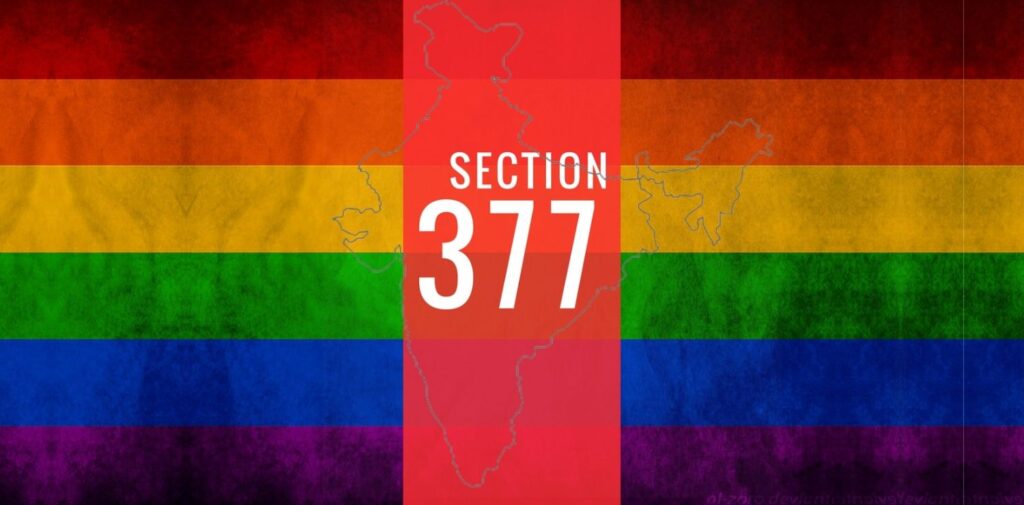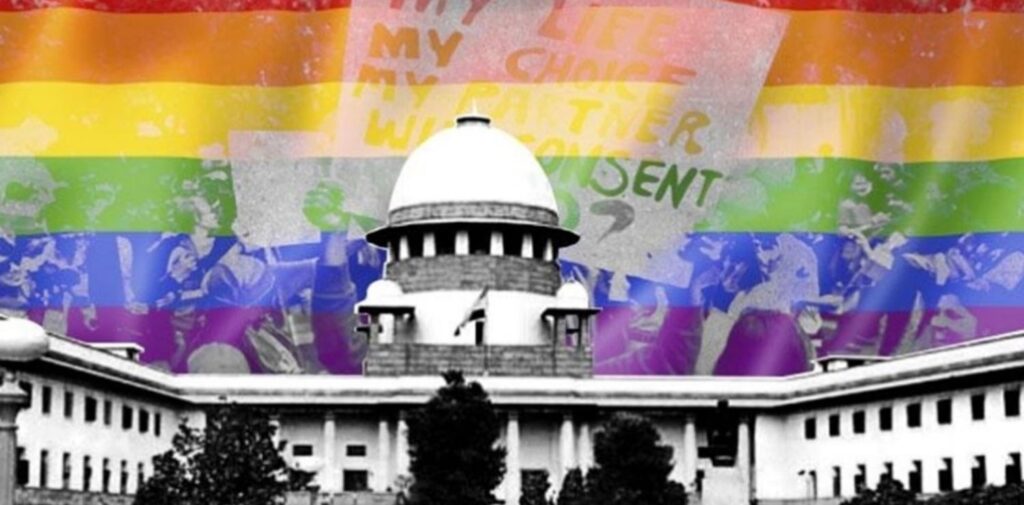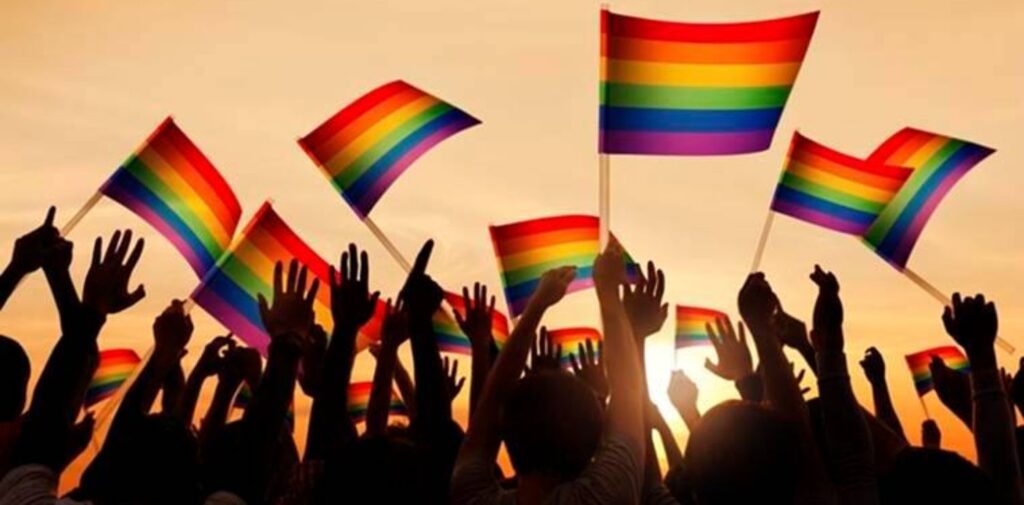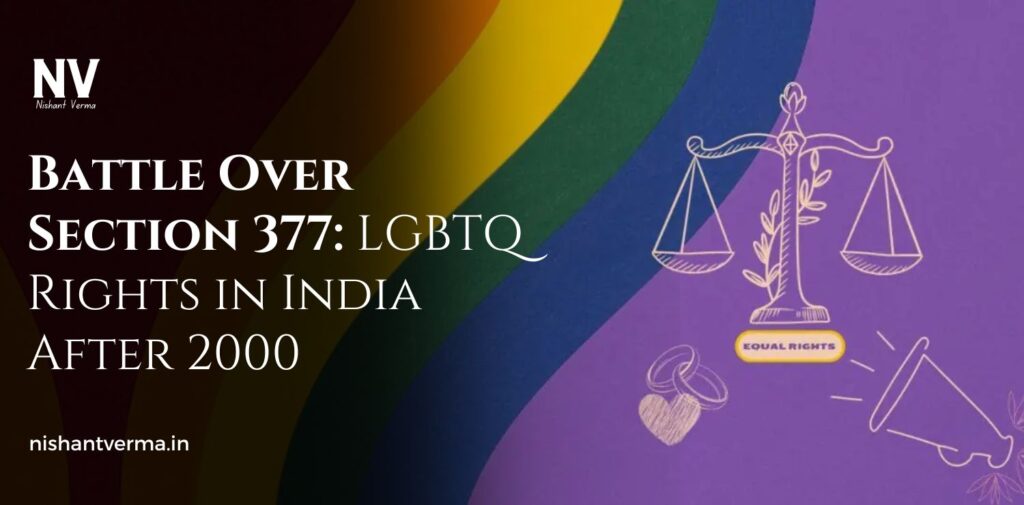India’s journey toward LGBTQ rights has been long and challenging, with many struggles, victories, and setbacks. One of the most significant and contentious issues surrounding LGBTQ rights in India has been the infamous Section 377 of the Indian Penal Code. This law, which criminalized consensual same-sex relations, was a symbol of discrimination and exclusion for decades. However, post-2000, a series of legal battles and social movements led to significant progress in LGBTQ rights in India, culminating in the historic 2018 ruling that decriminalized same-sex relationships. This article explores the battle over Section 377 and the progress made by the LGBTQ community in India after 2000.
Origins of Section 377 and Its Impact on LGBTQ Rights
Section 377 of the Indian Penal Code, introduced in 1861 by the British colonial rulers, criminalized “unnatural offenses,” including consensual sexual acts between same-sex individuals. While the law was initially meant to target specific sexual behaviors deemed immoral by British standards, its legacy continued long after India gained independence in 1947. The law remained in place for more than a century, reinforcing social stigma and legal discrimination against LGBTQ individuals.
In India, homosexuality has historically been viewed as taboo. Even though the country has a rich history of gender and sexual diversity, especially in ancient texts and traditions, colonial-era laws led to the criminalization of same-sex relationships. The impact of Section 377 was deeply felt by the LGBTQ community, as it made them vulnerable to harassment, blackmail, and legal punishment. Same-sex relationships were considered both illegal and immoral by the state, contributing to the marginalization and oppression of LGBTQ individuals.

Early Efforts to Challenge Section 377
The fight against Section 377 gained momentum in the early 21st century, spurred by a growing awareness of LGBTQ issues and increasing activism. One of the earliest legal challenges to Section 377 came in 2001, when the Naz Foundation, an NGO focused on HIV/AIDS awareness and health advocacy, filed a petition in the Delhi High Court seeking the decriminalization of same-sex relations between consenting adults. The petition argued that Section 377 violated fundamental rights, including the right to privacy and equality.
The case went through a slow and complex legal process, but in 2009, the Delhi High Court delivered a landmark judgment in favor of the Naz Foundation. The court decriminalized consensual same-sex relations between adults, declaring that Section 377 was unconstitutional to the extent that it criminalized private, consensual sexual conduct. This ruling was hailed as a historic victory for the LGBTQ community in India, marking the first time that the Indian judiciary recognized the rights of sexual minorities.
However, the victory was short-lived. In 2013, the Supreme Court of India overturned the Delhi High Court’s decision, reinstating Section 377 and once again criminalizing same-sex relations. The Supreme Court argued that only the legislature, not the courts, had the power to change the law. This decision was a major setback for LGBTQ rights, as it forced the community back into legal invisibility and made them vulnerable to state-sanctioned persecution.
Role of Social Movements and Public Opinion
Despite the setback, the fight for LGBTQ rights did not end with the 2013 ruling. In fact, it sparked a new wave of activism and public engagement on LGBTQ issues. The LGBTQ community, along with several supportive organizations and activists, began organizing protests, marches, and public campaigns to demand the repeal of Section 377.
One of the most visible symbols of this renewed fight was the annual Kolkata Pride Parade, which began in 1999 and became a focal point for LGBTQ rights in India. Over the years, pride parades and public demonstrations grew larger, with people from diverse backgrounds, including allies from various social movements, coming together to show solidarity for LGBTQ rights. These events played an important role in raising awareness and changing public perceptions of LGBTQ individuals, helping to reduce stigma and discrimination.
In addition to public protests, the media played a crucial role in shifting attitudes toward LGBTQ people. Television shows, movies, and documentaries began featuring LGBTQ characters and themes, which helped normalize diverse sexualities in mainstream culture. Celebrities and public figures also became vocal advocates for LGBTQ rights, lending their platforms to the cause. This cultural shift made it increasingly difficult for the government and society to ignore the rights of LGBTQ individuals.

The 2018 Supreme Court Verdict: Decriminalizing Section 377
The tireless activism and growing public support for LGBTQ rights culminated in a landmark moment for the Indian legal system in 2018. After years of legal battles, the Supreme Court of India finally delivered a historic judgment on September 6, 2018, striking down parts of Section 377 that criminalized consensual same-sex relations between adults. The Court ruled that Section 377 was unconstitutional in the context of private consensual sexual acts between adults, reaffirming the right to equality, dignity, and privacy.
The judgment was a victory not just for the LGBTQ community but for the entire country, as it marked a step toward greater acceptance, inclusion, and recognition of sexual diversity. The Supreme Court acknowledged that LGBTQ individuals have the same rights as any other citizen and that their sexual orientation should not be criminalized. The ruling also emphasized that individual privacy and the right to love whomever one chooses are fundamental rights enshrined in the Constitution.
The 2018 ruling was celebrated by the LGBTQ community and their allies as a long-awaited triumph over discrimination. It brought India in line with other countries that had already decriminalized same-sex relationships, including many Western nations. For the first time in Indian history, the LGBTQ community was officially recognized as deserving of equal rights under the law.
Consequences and Ongoing Struggles
While the 2018 ruling was a significant victory, it did not automatically guarantee full equality for LGBTQ individuals in India. The decriminalization of same-sex relations was a critical first step, but many challenges remain. Social acceptance of LGBTQ individuals is still a work in progress, and discrimination continues to affect their daily lives in various forms, such as in employment, education, and healthcare.
Additionally, issues such as same-sex marriage, adoption rights, and the legal recognition of transgender individuals remain unresolved. Same-sex marriage is still not legally recognized in India, and the community continues to fight for the right to marry and adopt children. The lack of legal protections against discrimination in areas like housing, employment, and public services further compounds the challenges faced by LGBTQ individuals.
The Transgender Persons (Protection of Rights) Act of 2019, which aimed to protect the rights of transgender people, is also seen as a step forward, but critics argue that it falls short in many areas, such as the legal recognition of transgender identity and the provision of social welfare benefits. The fight for a comprehensive legal framework that ensures full equality for the LGBTQ community is ongoing.

Global Impact and India’s Role
India’s 2018 ruling had a significant impact not only on the LGBTQ community within the country but also on the global LGBTQ rights movement. As one of the largest and most influential countries in the world, India’s decision to decriminalize same-sex relations set an example for other nations in the region and the world.
Several countries in Asia, including Nepal, Taiwan, and Thailand, have moved toward greater recognition of LGBTQ rights in recent years, partly inspired by India’s historic ruling. India’s stance also influenced other countries that were considering similar legal challenges. The ruling helped to shift global conversations about LGBTQ rights, especially in countries where homosexuality is still criminalized or deeply stigmatized.
Conclusion: Battle Over Section 377
The battle over Section 377 and LGBTQ rights in India is a powerful testament to the resilience and determination of the LGBTQ community and their allies. The decriminalization of same-sex relationships in 2018 marked a historic victory, but the fight for full equality is far from over. There is still much work to be done to ensure that LGBTQ individuals in India are fully recognized, accepted, and protected by the law.
As India continues to evolve, the legal and social battles for LGBTQ rights will shape the country’s future. The progress made since 2000 is a sign of hope and change, but true equality will only be achieved when LGBTQ individuals are fully integrated into society and their rights are fully protected, without discrimination or prejudice.




